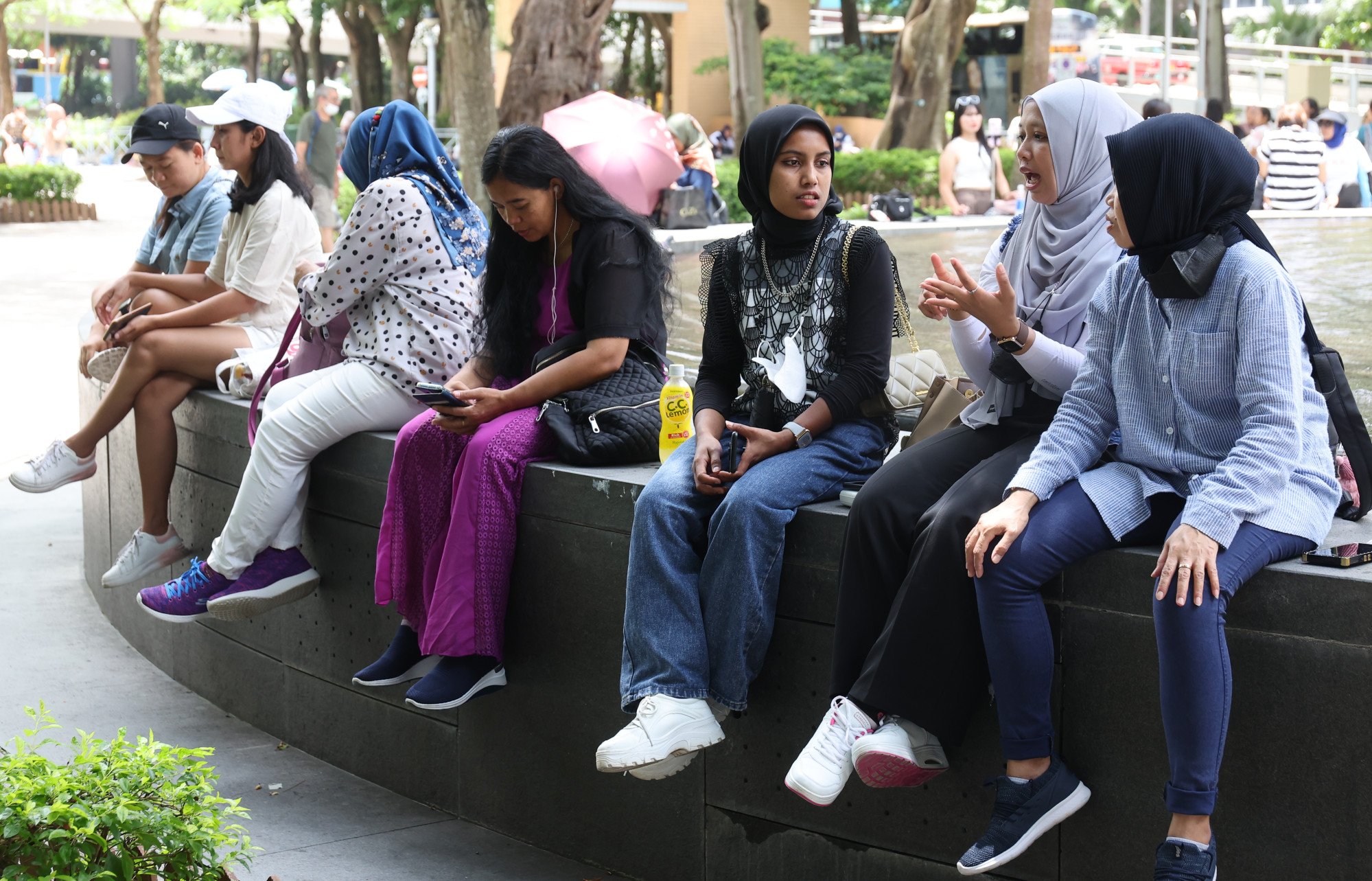
Hong Kong measures against domestic worker job-hopping are ‘discriminatory’, union says
- ‘We are deeply disturbed that the Labour Department views migrant domestic workers who assert their rights to terminate a contract as abuse,’ union says
- Agencies required to brief domestic workers on immigration regulations and arrangements for changing employers, according to new code of practice
A Hong Kong union has slammed the government’s enhanced measures against foreign domestic helper job-hopping as “serious discrimination”, saying it is unfair to deem the workers’ right to terminate their contracts as “abuse”.
The Hong Kong Federation of Asian Domestic Workers Unions released the statement on Monday after the government told lawmakers about the revised code of practice for employment agencies to “combat abuse” by helpers who prematurely terminate their contracts.
“We are deeply disturbed that the Labour Department views migrant domestic workers who assert their rights to terminate a contract as an abuse. It is misleading to the public to think migrant domestic workers don’t have the right to terminate contracts,” the union said.
“It will bring serious repercussions to the society to think that migrant domestic workers are slaves and can be easily replaced.”
Under the new code of practice implemented on May 9, the government requires employment agencies to brief foreign domestic workers on immigration regulations and arrangements for changing employers.
Agencies also should not induce helpers to prematurely terminate their contracts through monetary or other incentives, according to the updated code.
They will only be exempted under certain circumstances, such as having evidence of being abused or exploited, or if employers were unable to continue the contract due to migration, death or financial reasons.
If helpers are suspected of abusing the arrangement, their employment visa application may be refused.
The union said it was “serious discrimination” and a “threat” to migrant workers’ human rights when employers changing helpers was not considered an abuse.
As of May, the group said two workers asked for help this year as their contracts were terminated after only working for 10 to 15 days.
The group said the government should look into the reasons for contract termination and strive to protect migrant workers from being abused or exploited. They also called mandatory briefings to educate helpers about their rights.
The new code of practice also requires employment agencies to enhance transparency on their charges, such as stating whether employers can be refunded or replaced with a new foreign domestic worker upon a premature contract termination.

During the legislature’s manpower panel meeting on Monday, lawmaker Michael Lee Chun-keung suggested allowing employers to pay fees to employment agencies through instalments to minimise their losses in cases where foreign helpers job hop.
But Drew Lai Sai-ming, assistant commissioner for labour on policy support, said it would be up to the market to decide.
The code of practice regulates all employment agencies in the city, which will risk losing their licences upon breaching it.
There are more than 338,000 foreign domestic helpers in the city, most from the Philippines and Indonesia. Their standard employment contracts last for two years.
According to the Immigration Department, the number of visa applications from helpers referred to a special duties team on suspicion of job-hopping stood at 1,557 last year, down from 2,671 in 2022 and 5,844 in 2021.
There were 502 visa rejections among the referred applications last year, compared with 1,760 in 2022 and 2,833 in 2021.

